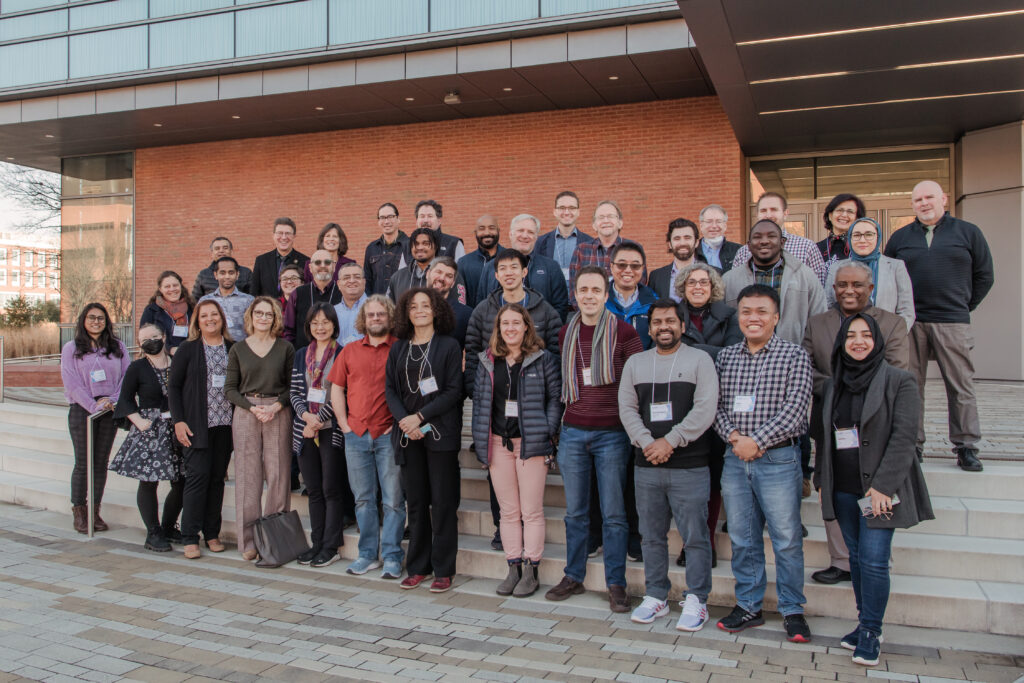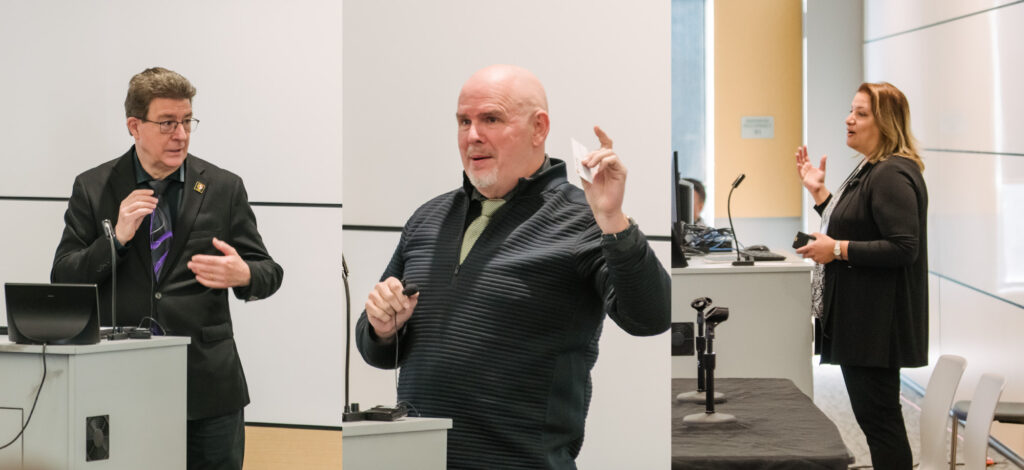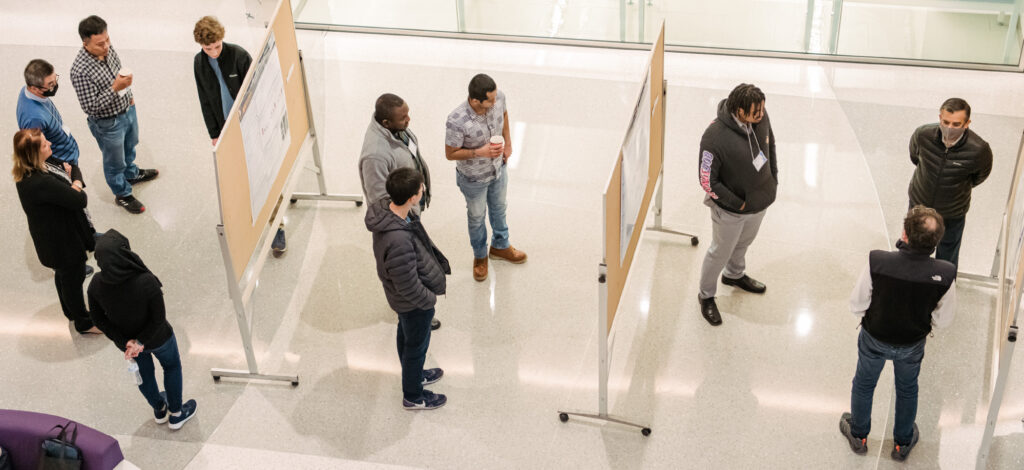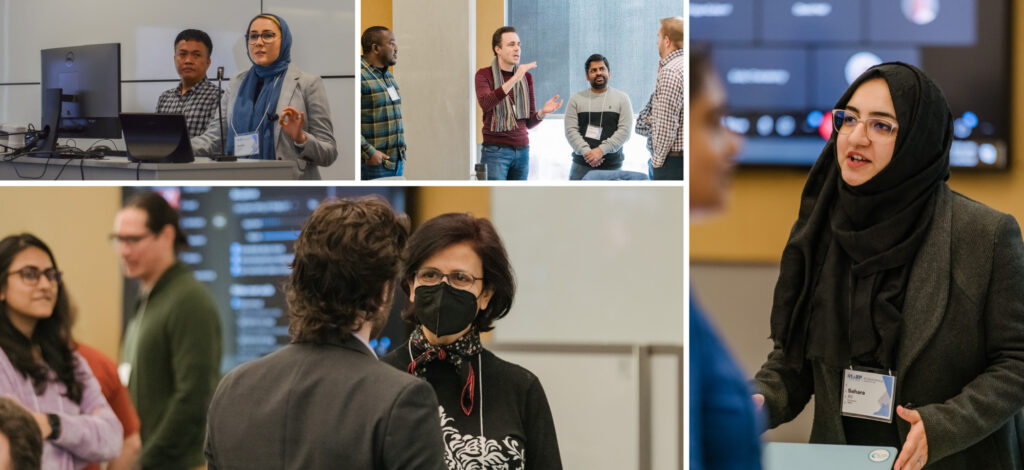Last week iHARP, an inaugural NSF HDR Institute, held its first in-person All Hands meeting to discuss current and upcoming projects as well as to network with researchers and scientists who specialize in data or polar sciences.
Taking place in the Interdisciplinary Life Sciences Building on the UMBC campus, the two-day event kicked off with opening remarks from Dr. Sylvia Spengler of the National Science Foundation, Dr. Karl Steiner, VP of Research and Dr. Keith Bowman, Dean of the College of Engineering and Information Technology both of UMBC.
Dr. Vandana Janeja, Director of iHARP, provided an overview of the research center to the 80+ attendees. There were 11 project presentations ranging from “Mapping the Subglacial Bed Topography from Surface Observation using Machine Learning” presented by Dr. Jianwu Wang and graduate assistant, Homayra Alam of UMBC and Dr. Mathieu Morlighem of Dartmouth College to “Bayesian calibration of ice sheet models,” presented by Dr. Andy Aschwanden of the University of Alaska, Fairbanks.
Breakout sessions posed the question of “How can we reduce the uncertainty in prediction of sea level rise?” After several lively discussions, ideas that were consistent between the groups were to address the discrepancy in predictions among different models and to bring together people with interdisciplinary skills.
Poster presentations included “Machine Learning Residual Ensemble Technique for Arctic Sea Ice Extent Forecasting,” by Louis Lapp of the Baltimore Polytechnic Institute, “On the role of aerosol atmospheric rivers (AAR) in snow darkening and ice melting over the polar region,” by Supid Chakraborty of the Jet Propulsion Laboratory, Christopher Shuman, research associate professor scientist at UMBC GESTAR II, and Atefeh Jebeli, Emam Hussain, Sara Khanjani, Saydeh Karabatis, and Xingyan Li each students at UMBC.
The event concluded with remarks from UMBC President Dr. Valerie Sheares Ashby on how wonderful it is to see this amazing work come from such a diverse group of students, researchers and faculty members and is proud UMBC has such a center doing this important work.
iHARP Mission:
iHARP conducts data intensive research, education, outreach, and cyberinfrastructure development that will transform understanding of the effects of climate change in polar regions. This institute brings together stakeholders and leading scholars in data science and polar science to reduce uncertainties in projecting Greenland and Antarctica’s future mass balance, associated sea-level rise, and impacts on global communities.
Visit iharp.umbc.edu for more information.
Visit the full photo gallery on our Facebook page.




